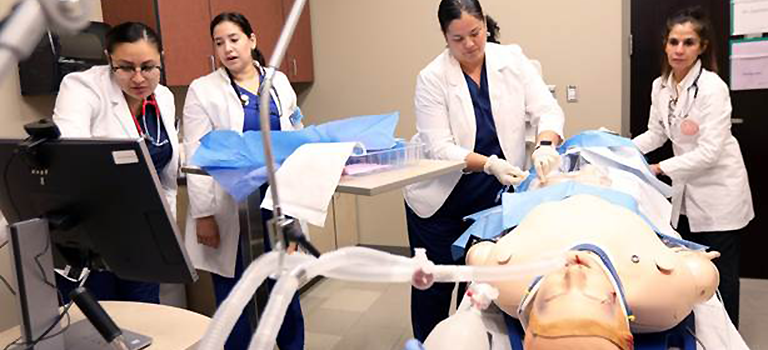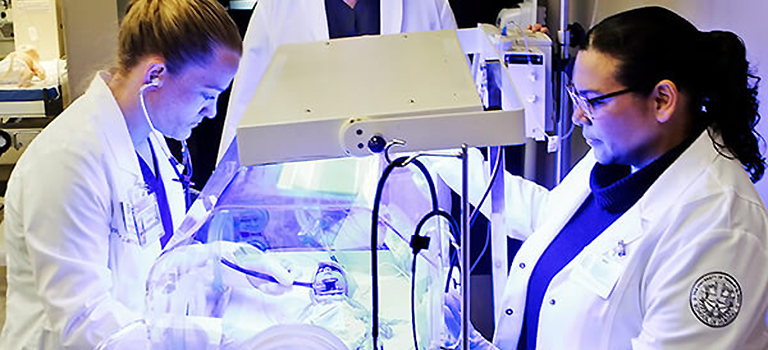Nurse Practitioner (NP)
The College of Nursing Graduate Program offers the Nurse Practitioner Degree (NP) with a choice of six concentrations. The concentration area chosen defines the population and role you are academically preparing for. There is not a generic Nurse Practitioner designation, you must identify both population and advanced practice role. After you have taken and passed your national board certification exam you will use the official title designated by both the state BON where you practice and the certifying body for your accreditation. The NP degree allows you to sit for the specific concentration advanced practice board certification exam. Upon passing the exam you are then eligible to apply to the state BON where you practice for advanced practice status. The MSN NP Degree is issued by UTEP and the specific NP Certification is issued by the specific certificating agency.
The UTEP College of Nursing prepares advanced practice registered nurses in the role of the nurse practitioner for either primary or secondary (acute) care. Program concentration choices are:

Adult Gerontology Acute Care Nurse Practitioner

Family Nurse Practitioner with Primary Care Focus

Neonatal Nurse Practitioner

Pediatric Acute Care Nurse Practitioner

Pediatric Primary Care Nurse Practitioner





